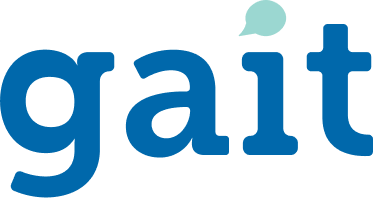• An APA working group reports on use of medications when treating children
Attention-deficit hyperactivity disorder: Both behavioral therapy, such as parent education and classroom interventions and pharmacological treatments such as central nervous system stimulants can be effective in acute cases, said the group. Combining them can yield better short-term outcomes than using either alone and also enables the use of lower doses of medication.
Oppositional defiant disorder and conduct disorder: More research has been conducted on behavioral treatment than on medication. Evidence indicates that psychosocial interventions such as home- and school-based behavior modification and combined or multisystemic therapy can yield significant results, although there is little information on long-term effects. Medications such as lithium and haloperidol can significantly reduce aggression in children with conduct disorder, however haloperidol can have serious side effects. There is little evidence to suggest that medication is effective in treating children with oppositional defiant disorder unless they also have attention-deficit hyperactivity disorder.
Tourette’s syndrome and tic disorders: Medication such as typical and atypical neuroleptics can be effective, but should be used with caution due to safety and tolerability issues. If prescribed, they should be used in conjunction with behavioral treatments, such as habit reversal training.
Obsessive-compulsive disorder: Research indicates cognitive behavioral therapy is very effective, but selective serotonin reuptake inhibitors (SSRIs) can also be effective for children who do not show improvement with behavioral therapy alone.
Anxiety disorders: There is strong evidence for the efficacy of cognitive behavioral therapy, but SSRIs may be effective for children who do not show improvement with behavioral therapy alone.
Depression and suicidal ideation and behavior: Evidence suggests that children and adolescents with depressive disorders respond well to a wide variety of psychosocial treatments. Fluoxetine–the only medication that has been approved by the Food and Drug Administration for use in children with depression–can be effective for children who don’t respond, but practitioners should monitor patients closely and inform parents about the risk of suicidal ideation or behavior associated with SSRIs. There is almost no research on specific treatments for suicidal children and adolescents. Multisystemic therapy has shown some promise in reducing suicide attempts, but these findings need to be replicated. There are no medication studies that have specifically targeted suicidal children and adolescents.
Bipolar disorder: Both the psychosocial and pharmacological treatments for this condition require more study. The limited research available suggests psychosocial treatments can be effective and do not have adverse side-effects. Researchers need to conduct short- and long-term studies to clarify the risk-benefit ratio for all psychotropics used to treat bipolar disorder in children and adolescents.
Schizophrenia spectrum disorders: The disorders are rare in this age group, and evidence on how best to treat them is also limited. Based on what is known, psychosocial interventions that are psycho-educational, cognitive-behavioral and family-based can be effective. Newer antipsychotic medications show promise, but also pose serious risks such as significant weight gain that can cause metabolic disorders such as Type 2 diabetes.
Anorexia nervosa and bulimia nervosa: There is very little evidence any psychosocial or pharmacological treatments currently being used are effective for anorexia. Psychosocial treatments–particularly cognitive-behavioral therapy–can be effective for bulimia. More research is needed.
Elimination disorders: Strong evidence supports behavioral treatments, such as a urine alarm. Imipramine can be effective when treating urinary elimination disorders, but it can have significant cardiac side-effects. Synthetic vasopressin nasal spray can also be effective, but once the child stops taking it, he or she will usually start wetting again. Practitioners should work with a child’s pediatrician since elimination disorders often have some physiological foundation.
Article:
Meyers, L. (2006). Medicate or Not? Vol. 37. No. 10. Pg. 24. American Psychological Association.


Recent Comments